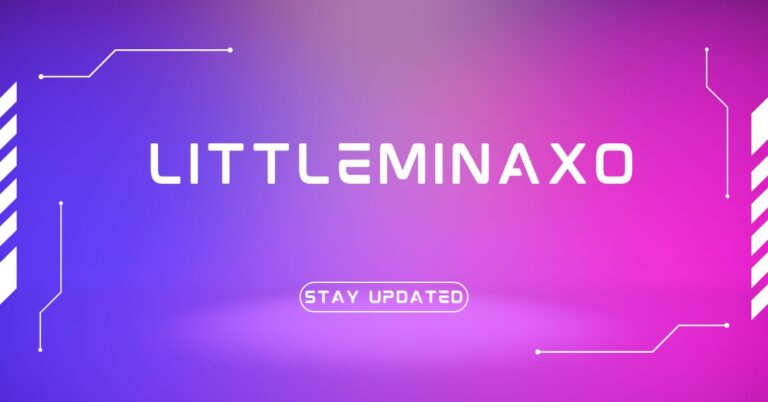Why Your Business Needs a Certified Salesforce Implementation Partner

In today’s hyper-competitive and data-driven business environment, leveraging the power of Customer Relationship Management (CRM) systems is no longer optional—it’s a necessity. Among all CRM platforms, Salesforce remains the market leader, known for its scalability, flexibility, and robust features. However, successfully deploying and optimizing Salesforce is a complex process that requires more than just basic technical knowledge. That’s where a certified Salesforce implementation partner becomes crucial.
Understanding the Role of a Salesforce Implementation Partner
A Salesforce implementation partner is a certified consulting firm or professional with expertise in deploying, customizing, and optimizing Salesforce solutions. These partners undergo rigorous training and certifications provided by Salesforce itself, ensuring they understand the platform’s intricacies and are equipped with best practices. From initial planning and system design to deployment, training, and ongoing support, an experienced partner helps you achieve a seamless Salesforce implementation tailored to your business needs.
1. Customized Solutions for Unique Business Needs
No two businesses are alike, and a one-size-fits-all CRM approach often leads to inefficiencies and poor adoption. A certified Salesforce implementation partner takes the time to understand your organization’s goals, processes, and challenges. They craft a customized Salesforce solution that aligns with your specific workflows, departments, and long-term growth strategies. This personalization ensures that the platform supports your business objectives rather than becoming an obstacle.
2. Deep Technical Expertise and Platform Knowledge
Salesforce is a powerful but complex platform, offering countless features across its ecosystem—Sales Cloud, Service Cloud, Marketing Cloud, Pardot, CPQ, and more. Navigating these options without expert guidance can lead to misconfigurations and missed opportunities. A certified Salesforce implementation partner brings specialized knowledge of the platform’s architecture, integration capabilities, and advanced features. Their expertise ensures that your implementation is not only functional but also optimized for performance and scalability.
3. Time and Cost Efficiency
Implementing Salesforce internally without a certified partner can lead to costly delays and resource drain. Missteps in configuration or data migration can result in expensive rework and prolonged downtime. On the other hand, a certified Salesforce implementation partner follows a structured, proven methodology that accelerates project timelines while minimizing risk. With streamlined project management and efficient execution, they help you avoid pitfalls and reduce overall costs.
4. Seamless Integration with Existing Systems
Most businesses operate with multiple software systems—ERPs, marketing tools, customer support platforms, and more. Integrating Salesforce with these tools is essential for achieving a unified data ecosystem. A skilled Salesforce implementation partner ensures that Salesforce communicates effectively with your existing systems. This leads to improved data accuracy, real-time reporting, and a holistic view of your customer journey.
5. Change Management and User Adoption
Even the best technology can fail if end-users aren’t properly onboarded. User adoption is one of the most critical—and often overlooked—elements of a successful Salesforce rollout. A certified partner not only handles the technical deployment but also supports change management efforts. They provide training, create user documentation, and design intuitive interfaces that drive adoption. When users feel confident and supported, they’re more likely to embrace the system and use it effectively.
6. Ongoing Support and Continuous Optimization
Salesforce is not a “set-it-and-forget-it” tool. Your CRM should evolve with your business, and that requires ongoing refinement. A certified Salesforce implementation partner offers post-implementation support, regular system audits, and enhancements to keep your Salesforce instance aligned with your evolving needs. Whether it’s adding new features, improving workflows, or adapting to regulatory changes, your partner acts as a long-term strategic ally.
7. Risk Mitigation and Compliance
Implementing Salesforce without proper governance can expose your organization to data security risks, compliance issues, and operational inefficiencies. A certified partner adheres to Salesforce best practices, industry standards, and compliance requirements. Their proactive approach ensures that data is handled securely, regulatory mandates are met, and the system operates within a safe and compliant framework.
8. Accelerated Return on Investment (ROI)
Ultimately, the goal of any CRM investment is to drive business outcomes—better customer relationships, improved sales performance, and increased operational efficiency. A certified Salesforce implementation partner helps you unlock the full potential of the platform faster, resulting in a quicker ROI. Their strategic guidance enables you to focus on high-impact use cases and KPIs, ensuring that your Salesforce investment delivers measurable value.
Choosing the Right Salesforce Implementation Partner
Not all Salesforce partners are created equal. When selecting a partner, look for certifications (such as Salesforce Certified Consultants or Architects), industry experience, case studies, and client testimonials. The right partner will act as an extension of your team—collaborative, transparent, and committed to your success.
Final Thoughts
A successful Salesforce implementation can transform your business by enhancing customer experiences, streamlining operations, and unlocking data-driven insights. However, achieving this transformation requires the right expertise. Partnering with a certified Salesforce implementation partner not only ensures a smooth and effective rollout but also positions your organization for long-term success. With the right partner by your side, Salesforce becomes more than just a tool—it becomes a powerful engine for growth and innovation.






